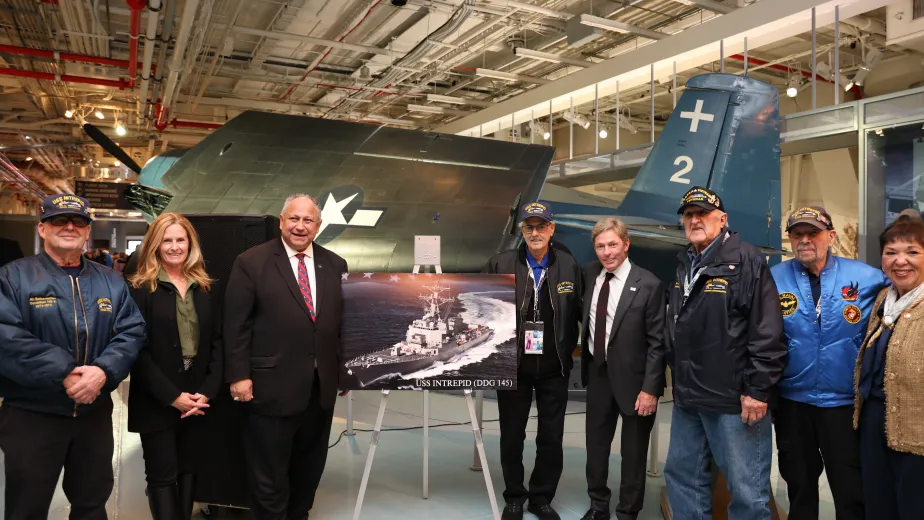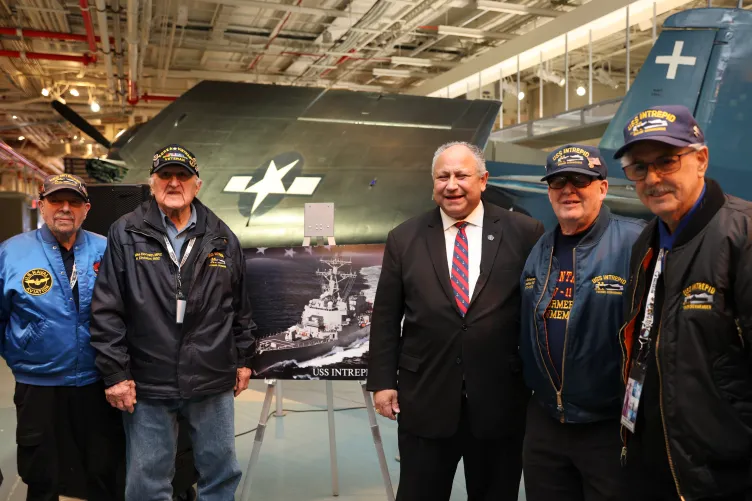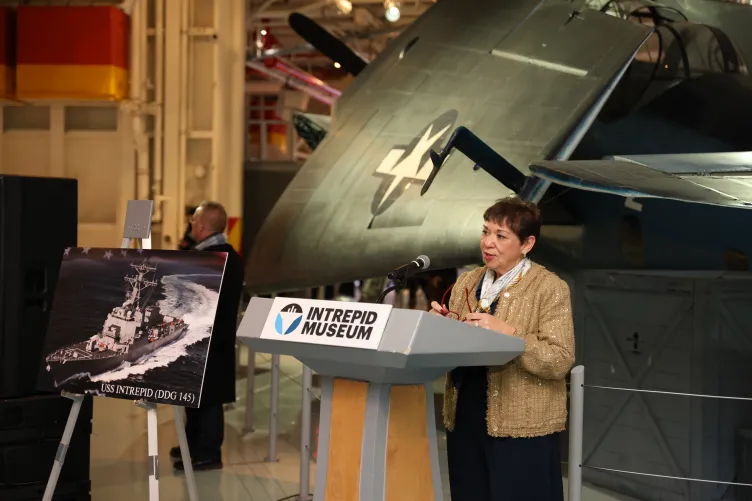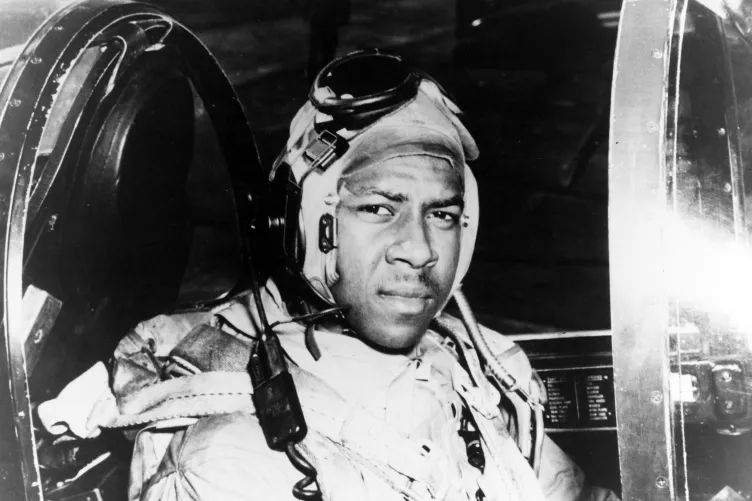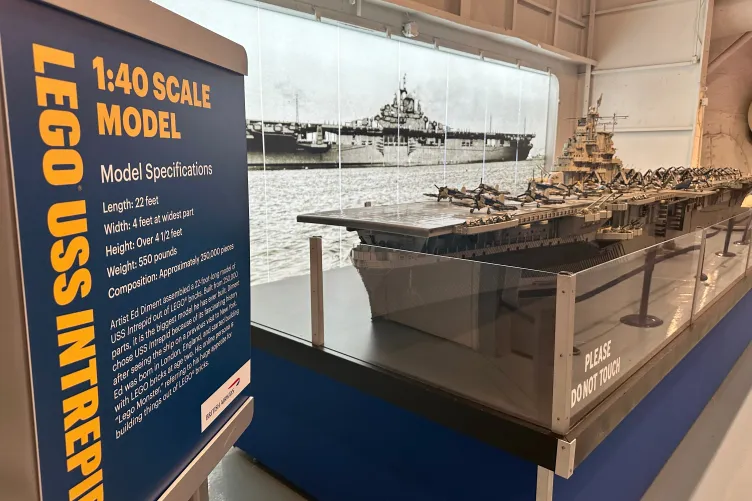
On January 3, Secretary of the Navy (SECNAV) Carlos Del Toro named the Navy’s newest Arleigh Burke-class Guided Missile Destroyer, the future USS Intrepid (DDG 145) aboard the former aircraft carrier which shares its namesake as the Intrepid Museum in New York City.
DDG 145 honors the four previous fearless Navy ship crews to bear the name. This will be the fifth ship named Intrepid.
“It is deeply meaningful to stand aboard Intrepid—the fourth vessel to bear the name, and whose proud legacy continues to inspire and remind so many visitors of the courage, resilience and sacrifice that define the U.S. Navy— and it is with profound respect that we also look to the future of our Navy from these decks,” said Del Toro. “It is my pleasure to announce that the fifth vessel named Intrepid will be an Arleigh Burke-class guided-missile destroyer, DDG 145, USS Intrepid, in honor of her past namesakes and the courageous service of all our Sailors globally from the South China Sea to the Red Sea.”
The first Intrepid was captured from the Barbary state of Tripoli in December 1803 where she sailed under the name Mastico. In February 1804, she then slipped into Tripoli harbor to set fire to the captured U.S. Navy ship Philadelphia.
The second Intrepid was an experimental steam torpedo ram, operating from 1874 to 1892.
The third Intrepid was a receiving and barracks ship assigned to the Yerba Buena Training Station and Mare Island Naval Yard.
The fourth Intrepid served from 1943 to 1974 as an aircraft carrier. Intrepid supported the capture of the Marshall Islands in early 1944. In September, the aircraft carrier struck targets in the Palaus and provided close air support to Marines on Peleliu. Intrepid then helped liberate the Philippines and took part in the Battle of Leyte Gulf in October 1944, where its air wing helped sink or damage three aircraft carriers, four battleships and a cruiser. The aircraft carrier was later hit by multiple kamikazes and participated in the invasion of Okinawa and attacks on mainland Japan. Intrepid was decommissioned in 1947 and recommissioned in 1952, becoming the first carrier to use American-built steam catapults. The carrier supported NATO in the 1950s and 1960s and recovered several NASA space capsules. Intrepid then joined Seventh Fleet to support combat operations off Vietnam, where it was lauded for its speed in launching aircraft. In 1969, the aircraft carrier returned to the North Atlantic, sailing there until decommissioning in 1974. This Intrepid is preserved as a museum ship in New York City.
“We know this namesake ship will serve our Navy and our nation proudly as the former USS Intrepid did and continues to do, and we couldn’t be more thrilled that it begins its proverbial journey today at the Intrepid Museum,” said Intrepid Museum President Susan Marenoff-Zausner. “For all of its missions, the entire Museum team wishes the ship and its crew safety and success.”
Along with announcing the ship’s name, Del Toro also announced the sponsor for the future USS Intrepid (DDG 145) as Mrs. Betty Del Toro, who will represent a lifelong relationship with the ship and crew.
Mrs. Del Toro is not only the wife of Secretary Del Toro but is also a lifelong supporter of the Navy and a steadfast advocate for sailors and marines. She served as a military spouse for 22 years, encompassing 17 military moves. She is passionate about matters that involve military families and children. Over the last three years, she has met with hundreds of service members, spouses, and dependents.
“I am especially proud to serve for a ship whose name embodies American courage and resilience,” said Betty Del Toro. “Having had the honor and opportunity to stand alongside my husband throughout his active-duty Navy career and as the 78th Secretary of the Navy, I embrace this new role—one which emphasizes something that is deeply important to me; supporting Navy sailors, marines and their families.”
Arleigh Burke-class destroyers, built around the Aegis Combat System, are the backbone of the U.S. Navy’s surface fleet providing protection to America around the globe.
They incorporate stealth techniques, allowing these highly capable, multi-mission ships to conduct a variety of operations. From peacetime presence to national security, these ships provide a wide range of warfighting capabilities in multi-threat air, surface and subsurface domains. These elements of sea power enable the Navy to defend American prosperity and prevent future conflict abroad.
More information on guided-missile destroyer programs can be found here.
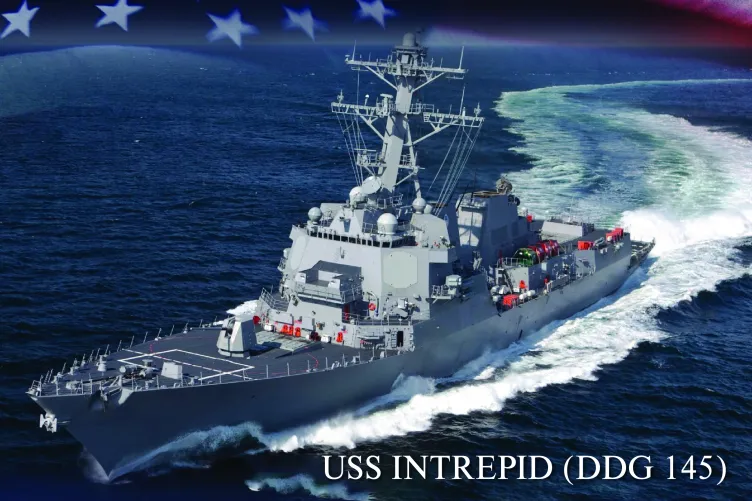
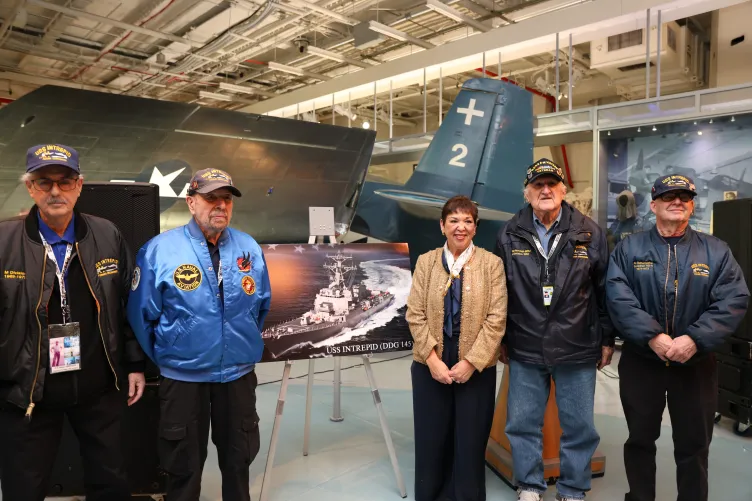
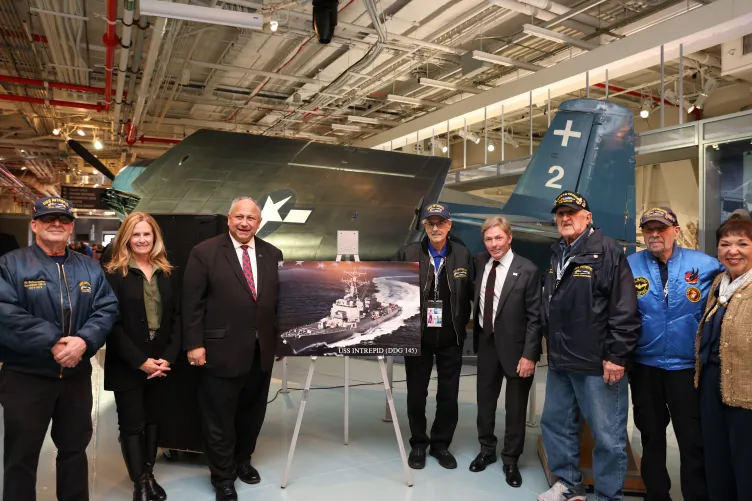
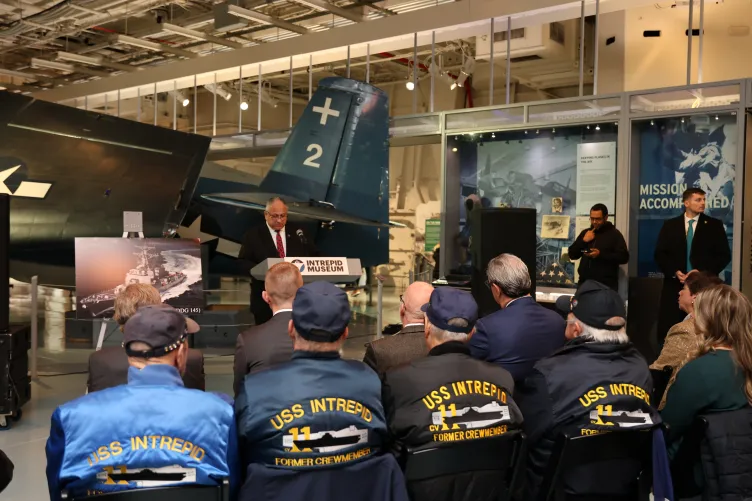
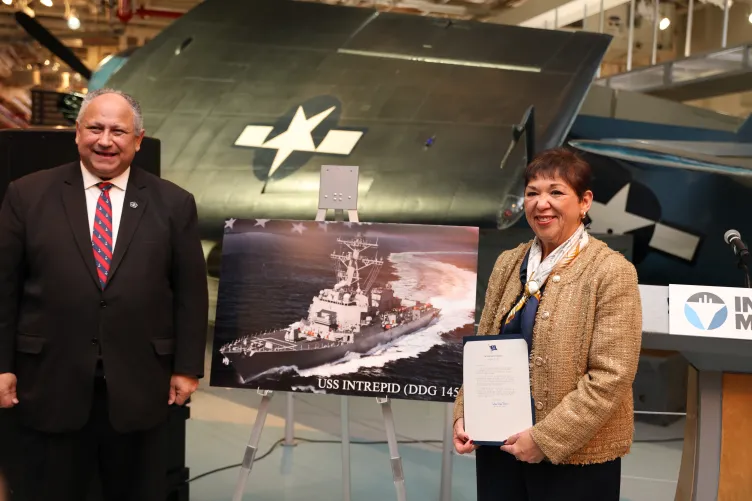
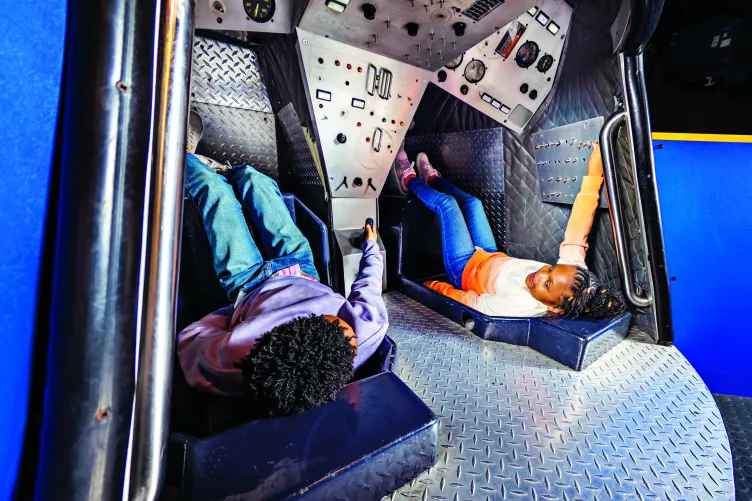
Want to visit the museum? We would love to have you! Find out all about our offerings here and plan your trip today.
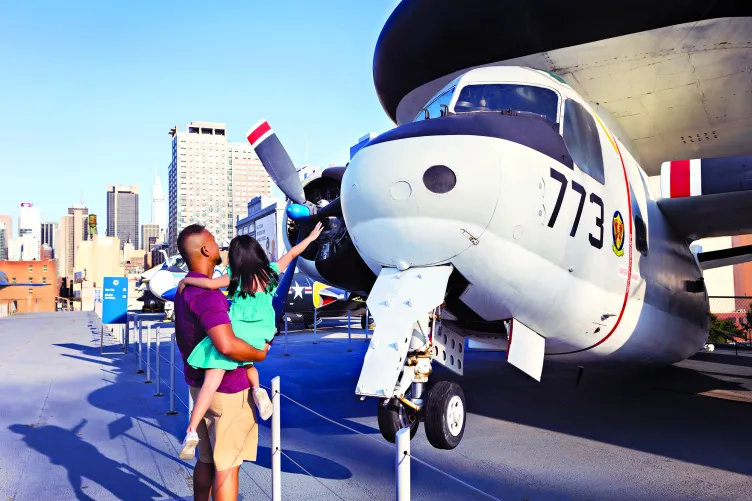
If you join our membership program you can visit the museum any time! Plus enjoy many membership perks at a discounted rate.


